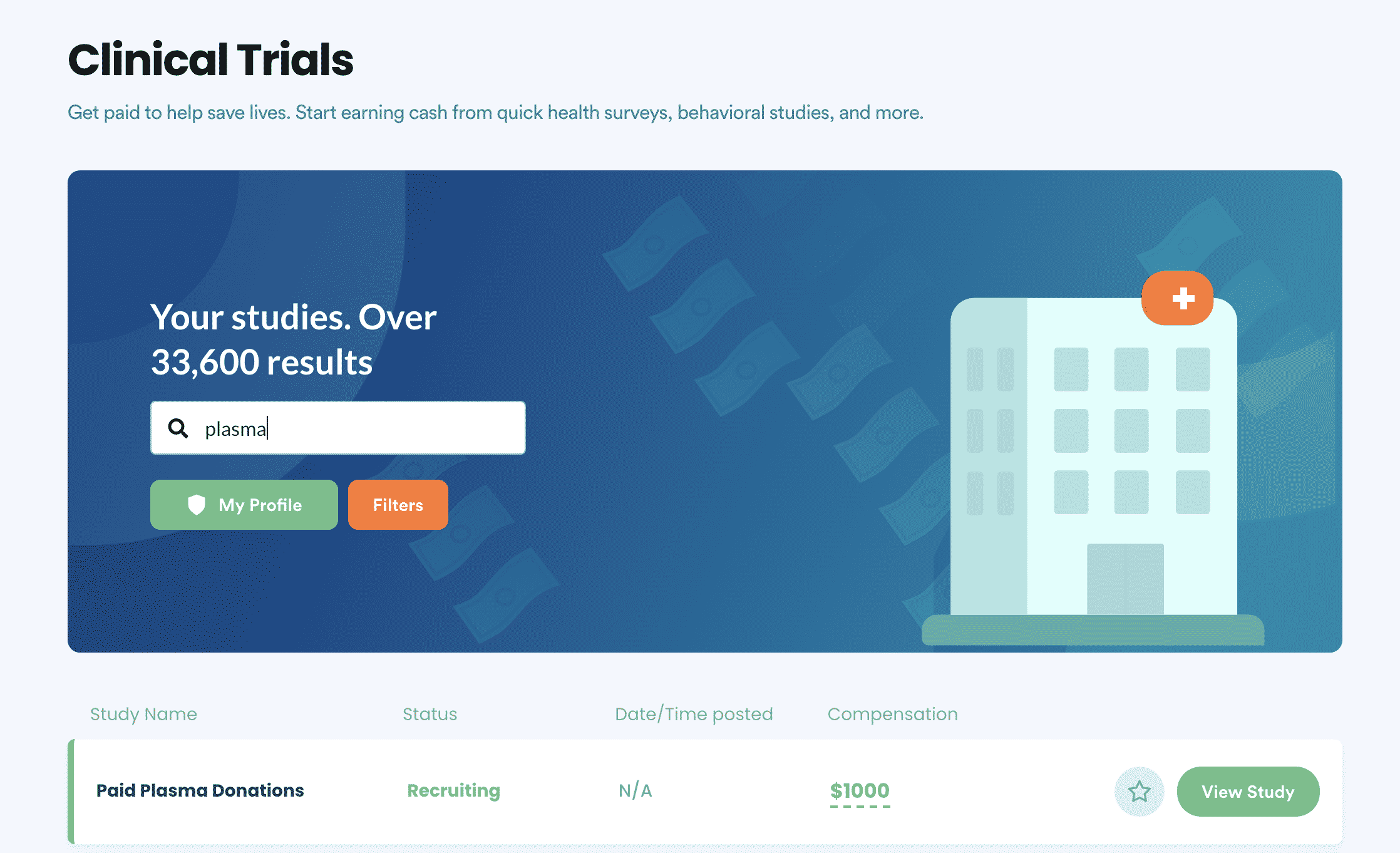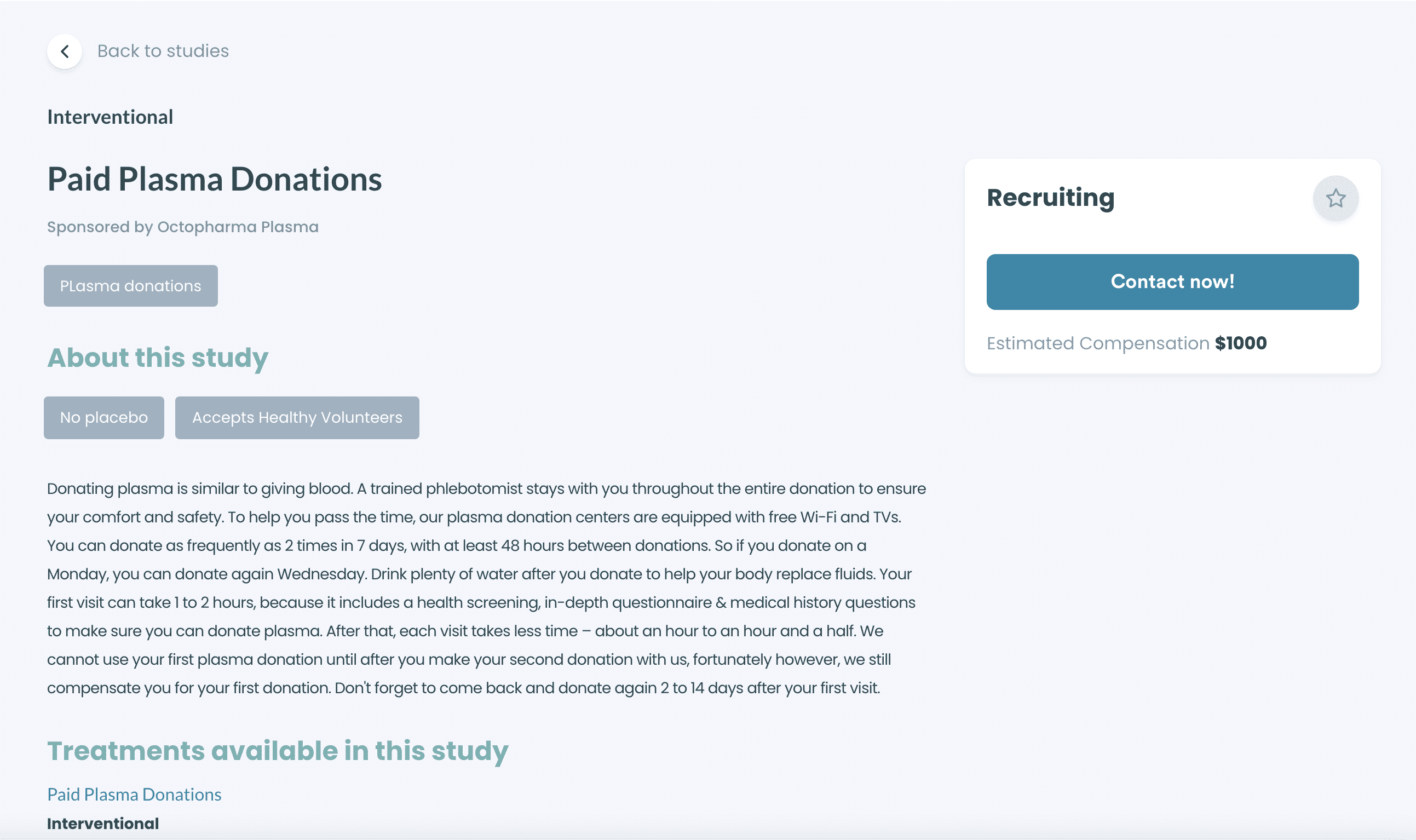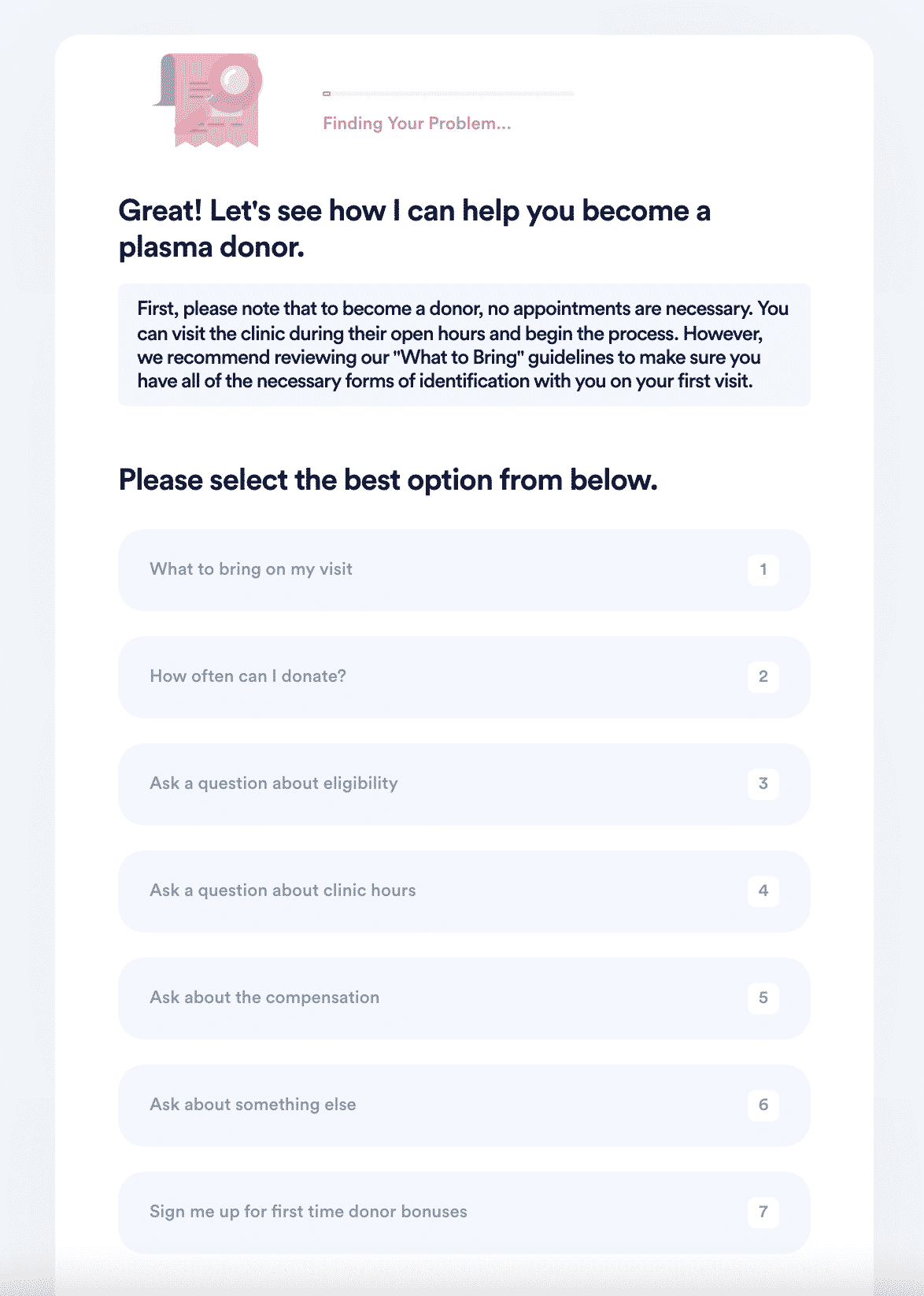How Much Blood Will They Take When You Donate Plasma?
Maybe you have considered becoming a plasma donor, but you have concerns about the process. You can earn money while also saving lives. Not only is plasma donation a great way to help your community, but you can also supplement your income with your gift of life.
Let DoNotPay help you understand as well as other questions you may have. Let's take a look at some concerns you may have with the donation process.
What Is Plasma and Why Donate Plasma?
Whole blood donations and plasma donations are different. According to Plasma Hero, plasma donation is taking plasma from the blood, which can then be used to create therapeutic drugs to treat a variety of life-threatening disorders. The procedure is the same for whole blood and plasma donation, but plasma donation takes a bit longer.
Giving plasma differs from donating whole blood in a few ways. When you give whole blood, it is immediately placed in a collecting bag and separated in a laboratory. When you give plasma, the blood collected from your arm is separated into its various components using specialized equipment, and the red blood cells are then sent back into your body.
During one donation session, source plasma donors can provide up to 800 milliliters of plasma. , which is quickly replenished by the body in a matter of hours.
Donated plasma is used in creating therapeutic proteins, which are life-saving treatments for patients with primary immunodeficiency, hemophilia, septic shock, and other conditions that are treated with these proteins.
Plasma Donor Eligibility Requirements
To donate plasma, you must first meet a few requirements. According to the Donating Plasma website, those requirements are:
- Plasma donors should be at least 18 years old
- Plasma donors should weigh at least 110 pounds or 50 kilograms
- Must pass a medical examination
- Complete an extensive medical history screening
- Test non-reactive for transmissible viruses including hepatitis and HIV
Plasma Donation Locations in the US
There are many sites across the US where you can donate plasma. Here are just a few of those sites:
| CSL Plasma | 5740 W Little York Rd, Houston, TX 77091 | (832) 327-2638 |
| BioLife Plasma Services | 5951 S 180th St Ste 101, Tukwila, WA 98188 | (206) 566-7852 |
| Octapharma Plasma | 1203 W Pratt St, Baltimore, MD 21223 | (443) 927-2269 |
How Much Do You Get Paid for Plasma?
According to the CSL Plasma website, you can earn more than $1,000 for your first month of donations. Payments are made via a reloadable prepaid card, and donors also accumulate points for each donation through our iGive Rewards program.
U.S. FDA regulations state that the maximum frequency of donation is once in two days, and no more than twice in seven days. In addition, compensation may vary depending on your location and body weight.
Things to Keep in Mind Before Donating Plasma
When donating, there are a few things to keep in mind.
- Make sure you're well-hydrated prior to your donation. 2 to 3 hours before donation, consume 4-6 eight-ounce glasses of water, fruit juice, or other caffeine-free fluids.
- No caffeinated beverages in the hours leading up to the donation
- No nicotine or alcohol before or after donating plasma
- Eat a well-balanced, low or non-fat meal a few hours before you donate
- Get adequate sleep the night before your donation
How to Donate Plasma On Your Own
To donate plasma, you must first locate a facility in your area. Then you'll need to get in touch with them to find out how and when the necessary medical checks will take place.
You'll also need to look into their working hours, how they compensate their donors, and the next actions you'll need to do to donate. As you can see, the procedure can be difficult at times. We can take care of these issues for you and save you time and hassle with DoNotPay.
Next Steps for Donating Plasma if You Can’t Do It Yourself
DoNotPay can assist you in finding the best plasma locations near you as part of our clinical trials package. So you know precisely what to expect, we provide compensation estimates and clarify the qualifying conditions and contribution process. If you have any questions or concerns about your eligibility, donation center hours, compensation, or first-time incentives, we'll assist you in contacting them.
Here's how you can use DoNotPay to become a plasma donor:
- Search "plasma donations" on DoNotPay and find the nearest donation clinic through our clinical trials product.

- Select the "Contact Now" button to learn more about eligibility criteria, contact the clinic with questions, or sign up for first-time donor bonuses.

- Verify your information and submit your inquiry! DoNotPay will contact the clinic on your behalf and make sure your questions get answered.

DoNotPay Works Across All Areas With the Click of a Button
DoNotPay will help you find donation centers wherever you are located in the US. We can also help with:
- Determining how often you can donate
- Find out how long it takes
- How to donate
- Donation requirements
- If you can donate after the COVID vaccine
- How old do you have to be to donate plasma
- Find out if you can donate plasma if you are diabetic
- Find out if you can donate plasma
What Else Can DoNotPay Do?
Not only can DoNotPay help with plasma donation, but we can also help with other topics related to health care such as:
- Advance health care directive
- Clinical trials
- Insurance claims
- Sick leave requests
Plasma donation is one of the best ways that you can give back to your community and generate supplemental income in the process. With the help of DoNotPay, we can alleviate your concerns and help you save a life.


